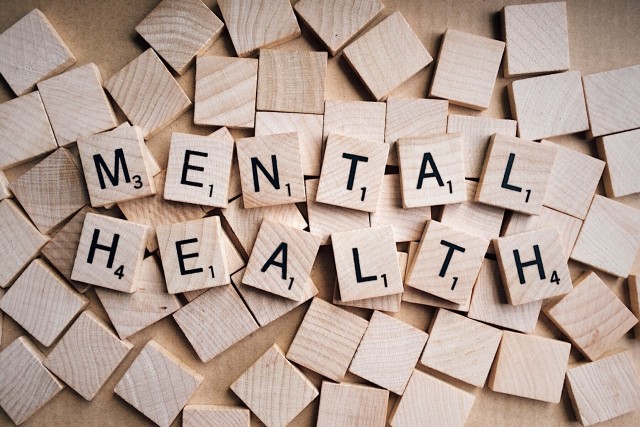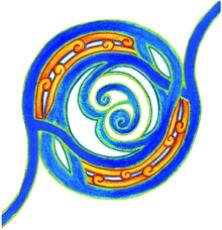Updates on government work in mental health
Thu 10 Oct 2019
The Government has announced work addressing some of the recommendations of the mental health and addictions inquiry. These include establishing an initial Mental Health and Wellbeing Commission, launching a new Suicide Prevention Strategy and Action Plan and a call for proposals for Integrated Primary Mental Health and Addiction Services.

Updates on government work in mental health
Mental Health and Wellbeing Commission
The Government has established an initial Mental Health and Wellbeing Commission which will lay the groundwork for the permanent Commission. The permanent Commission is expected to be launched in February 2021. Legislation will be requried to set up the Crown entity. The Beehive press release summarises the key focus of the initial commission as being to:
- "Provide independent scrutiny of the Government’s progress in improving New Zealand’s mental health and wellbeing
- Promote collaboration between mental health and wellbeing entities
- Develop advice for the permanent Mental Health and Wellbeing Commission so it can make swift progress once it has been established, including a work programme, outcomes and monitoring framework"
Hayden Wano (Te Ātiawa, Taranaki, Ngāti Awa) has been appointed as the Chair of the initial Commission. Health Minister David Clark said:
“A key focus for Mr Wano and the initial commission will be looking at the wider range of factors that contribute to people’s overall mental wellbeing. That includes looking across social welfare, housing, education and justice as well as talking to those with experience of mental health and addiction.”
Other members include Kendall Flutey, Kevin Hague, Kelly Pope and Dr Julie Wharewera-Mika. The press release includes the draft terms of reference for the initial commission.
The previous Mental Health Commission was disestablished in 2012.
Update: The Government introduced the Mental Health and Wellbeing Commission Bill in November to establish the commission.
Suicide prevention
The Government has launched Every Life Matters – He Tapu te Oranga o ia Tangata: Suicide Prevention Strategy 2019–2029 and Action Plan 2019–2024 for Aotearoa New Zealand.
The strategy discusses the importance of importance of understanding the impact of adverse childhood events and poipoi wairua (trauma-informed responses).
The document acknowledges the links between suicide and wider social issues:
"Every Life Matters focuses on improving the wellbeing of people in Aotearoa New Zealand, but it recognises that a broader range of policies, activities and initiatives also contribute to reducing the risk of suicide. The range includes work to: improve child and youth wellbeing; eliminate family violence and sexual violence; overhaul the welfare system; transform the approach to mental wellbeing; improve support for people impacted by alcohol and drug use; and embed Whānau Ora approaches." (page 6)
However, the plan does not specifically address actions or inter-related work in these areas.
The Beehive press release also announces that a Suicide Prevention Office will be established. The Office will initially be housed and supported by the Ministry of Health, with the plan for it to become a standalone Office in the future. The purpose of the Office is to provide central leadership and better coordination of suicide prevention work. In addition, a Māori advisory group and a lived experience advisory group will be established. Carla na Nagara has been announced as the Director of the Suicide Prevention Office for an initial two years.
Call for proposals for Integrated Primary Mental Health and Addiction Services
The Ministry of Health has opened a request for proposals (RFP) for Integrated Primary Mental Health and Addiction Services accessed through General Practice. The Ministry is seeking collaborative proposals from primary health organisations, district health boards and non-government organisations from all regions throughout New Zealand. See the Government Electronic Tenders Service (GETS) ID 21596745 for more information. The deadline to submit a proposal is 24 October 2019 at 12pm.
The Ministry of Health email update notes: "This is the first step in a long-term programme of investment in frontline mental health and addiction services - it is not the only solution, there will be other services developed and funded both in this year and future years."
Update: The Ministry of Health has announced two additional Request for Proposals (RFPs): one for kaupapa Māori mental health and addiction services and one for Pacific mental health and addiction services.
Responses to the initiatives
Māori Council Executive Director Matthew Tukaki has criticised the lack of standalone suicide prevention strategy for Māori and the lack of a dedicated Māori mental health commissioner. Mental Health and Wellbeing Commission Chair Hayden Wano responded to these concerns in an interview with Waatea news.
Matthew Tukaki is also raising these issues in stage two of the Waitangi Tribunal Wai 2575: Health Services and Outcomes Inquiry and calling for the first focus to address mental health and suicide prevention.
The Aotearoa New Zealand Association of Social Workers (ANZASW) welcomed the Government's suicide prevention strategy and action plan, but highlighted gaps in addressing the wider factors that contribute to suicide. ANZASW Chief Executive Lucy Sandford-Reed said:
“While of course we commend the government for boosting support to services, creating new initiatives and positions, we must as a country also address the daily social and economic challenges people face, which also contribute to the very high rate of suicide in Aotearoa. This view has been articulated very well by Māori Council chief executive Matthew Tukaki. Like him, social workers recognise the context in which suicidal ideation or actions occur often cannot be separated from the issues that create challenges, such as poverty, abuse, addiction, marginalisation and the stress of experiencing adversity over the long term. We would like to see a more holistic approach to preventing suicide from the government."
More information
In May, Budget 2019 announcements included the Government's response to the 40 recommendations from He Ara Oranga: Report of the Government Inquiry into Mental Health and Addiction (2019).
For more information, see Mental Health and Addictions on the Ministry of Health's website. You can read previous updates and subscribe to email updates from the Mental Health and Addiction directorate. These relate to the Ministry of Health's work to implement the Government’s response to He Ara Oranga.
Related news
The United Nations Special Rapporteur on the right of everyone to the enjoyment of the highest attainable standard of health has called on States to take a rights-based approach instead of excessive medicalisation in suicide prevention strategies. In his statement for World Health Mental Health Day, 10 October 2019, the Special Rapporteur highlighted wider issues related to mental health issues and suicide, including the links to trauma and violence:
"There is a substantial relationship between trauma and suicide, with exposure to interpersonal violence and abuse arising within systemic issues affecting families and communities. What the global movement for mental health is describing as the high burden of mental diseases may also be described as the high burden of the effects of trauma and other adversities, including child abuse and neglect and other adverse childhood experiences.
Interventions are needed that avoid medicalizing emotional pain and empower individuals in vulnerable situations. Prevention strategies should prioritize addressing health determinants and improving human living conditions over those that disempower individuals and perpetuate social exclusion and stigma by pathologizing diverse responses to adversity. A reduction in structural and interpersonal violence—particularly gender based violence and child abuse and neglect—and the resulting trauma is essential for addressing the major underlying causes of suicide."
Le Va has recently produced a learning module on Shifting from trauma-informed care to healing-centred engagement. The module explores what trauma is and the effects of trauma with a specific focus on a healing-centred approach when working with Pasifika people and families.
An article written by Family Violence Death Review Committee members and staff urges mental health and addiction services to reframe the way they understand and respond to family violence. The article, Thinking differently: Re‐framing family violence responsiveness in the mental health and addictions health care context (Short, Cram, Roguski, Smith & Koziol-McLain, 2019) is published by the International Journal of Mental Health Nursing.
The Suicide Mortality Review Committee has published a new report examining deaths by suicide in the Asian population of Aotearoa New Zealand. Chair of the Committee, Professor Rob Kydd said: "... policies for Asian and refugee communities are under-developed."
The Health Quality & Safety Commission is running a survey for consumers, family and whānau about their experiences with mental health and addiction services provided by District Health Boards.
Related media
Iwi slighted by mental health RFP, Waatea News, 02.11.2019
New thinking needed for Maori mental health services, Waatea News, 31.10.2019
Lack of policy over increasing suicide rates for Asians, RNZ, 09.10.2019
Pacific people urged to talk openly about mental wellbeing, RNZ, 27.09.2019
Māori experiences of NZ's mental health services, Newshub, 22.09.2019
Māori-led series of initiatives ‘addressing the elephant in the room’, Gisborne Herald, 12.09.2019
Māori Council slams Government’s suicide plan, Newsroom, 11.09.2019
Concerns over lack of Māori suicide prevention strategy, RNZ, 11.09.2019
Māori models needed for suicide action, Waatea News, 11.09.2019
Suicide statistics a sad reminder of challenge we face, Beehive Press Release, 26.08.2019
Image: Wokandapix from Pixabay






